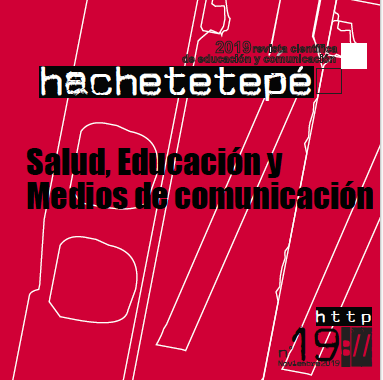Experiences lived in Radio Nikosia: semantic change and protagonism in mental health
Abstract
The objective of this essay was to analyze the experiences lived in Socio Cultural Association Radio Nikosia in Barcelona, Spain, to understand what meanings were built in the lives of people diagnosed with mental disorder from their participation in Radio Nikosia. It is a group democratically organized by assembly and communication instances with the realization of a radio program, workshops and urban interventions. Its proposal is to create spaces for interaction and social listening that enhance the autonomy and dignification of people, mainly those affected by the diagnosis. The experiences narrated by Nikosians allowed to understand that their participation in this collective made it possible to assume the protagonism of their lives, with significant semantic changes in their identities, expanding the relationships, the roles assumed and the perspectives when expressing their reflections in assemblies, radio programs and other spaces.
Keywords
Downloads
How to Cite
License

This work is licensed under a Creative Commons Attribution-NonCommercial-NoDerivatives 4.0 International License.
Those authors who have published with this journal, accept the following terms:
- They will retain their copyright and guarantee the journal the right to first publication of their work, which will simultaneously be subject to the Creative Commons Attribution License . They may be copied, used, disseminated, transmitted and publicly displayed, provided that the authorship, url, and magazine are cited, and are not used for commercial purposes. No derivative works are allowed.
- They may adopt other non-exclusive license agreements for the distribution of the published version of the work (e.g., deposit it in an institutional telematic archive or publish it in a monographic volume) provided that the initial publication in this journal is indicated.
- Disseminate your work through the Internet (e.g., in institutional telematic archives or on your website) once the manuscript is accepted, which may lead to interesting exchanges and increased citations of the published work. (See The effect of open access).
Hachetetepé. Scientific journal of education and communication does not charge a fee for the submission of manuscripts or for the publication of its articles.
References
Bobes, J. y Otros (2012). The state of psychiatry in Spain. International review of psychiatry, 24(4); 347–355.
Corbisier, C. (2000) RIPP: quando escutar é preciso. Cadernos IPUB: a clínica da Recepção nos dispositivos de saúde mental. Rio de Janeiro: Instituto de Psiquiatria, UFRJ.
Correa-Urquiza, M (2013) Radio Nikosia: Mutiny on the Ship of Fools. Rethinking Madness: Interdisciplinary and multicultural reflections. Oxford: Inter-Disciplinary Press.
Correa-Urquiza, M (2012) Salud mental: Nuevos territorios de acción y escucha social. Material de la asignatura Acción Socio Educativa y Salud Mental -l Departamento de Estudios de Psicología y Ciencias de la Educación de la Universidad Abierta de Cataluña (UOC)
Correa-Urquiza, M (2010) La rebelión de los saberes profanos. Otras prácticas, otros territorios para la locura. Tesis Doctoral. Tarragona: URV.
Correa-Urquiza, M. y Otros (2006) La evidencia social del sufrimiento: salud mental, políticas globales y narrativas locales. Quaderns de l’Institut Català d’Antropologia, 22; 47-69.
Crossley, N. (1996) Intersubjectivity, the fabric of social becoming, London, Thousand Oaks: Sage Publications.
Fagundes, S. (2001) Saúde mental nas Políticas Públicas Municipais. Em Venâncio, AT. y Cavalcanti, MT. Saúde Mental: campo, saberes e discursos. Rio de Janeiro: Edições IPUB-CUCA; 265-275.
García-Armesto, S. y otros. (2010). Spain: Health system review, Copenhagen: WHO European Office.
Howarth, C., Foster, J. y Dorrer, N. (2004) Exploring the Potential of the Theory of Social Representations in Health Research — and Vice Versa ? Journal of Health Psychology, 9(2); 229–243.
Martínez Hernáez, A. (2008) Antropología Médica. Teorías sobre la cultura, el poder y la enfermedad. Barcelona: Anthropos.
Moscovici, S. (1988). Notes towards a description of social representations. European Journal of Social Psychology, 16(3); 211–250.
Pichon-Riviére, R. (1993) O processo grupal. São Paulo: Editora Martins Fontes.
Zimerman, D. y Osório, L.C. (1997) Como trabalhamos com grupos. Porto Alegre: Artes Médicas.






